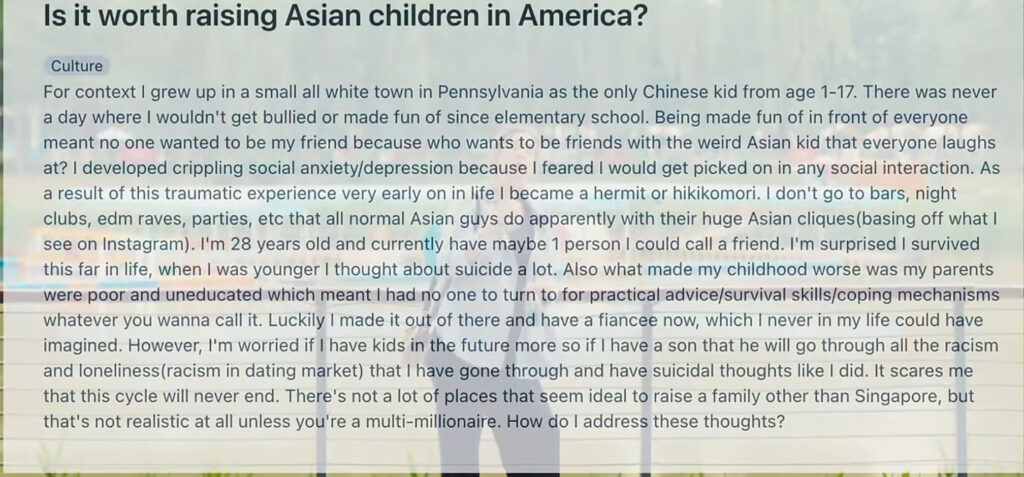
In the lifestyle of digital nomads, deciding where to educate their children is a crucial decision. Digital nomads often seek freedom and flexibility, enabling them to work and live globally. Therefore, choosing where to provide education for their children involves more than just geographical considerations; it also encompasses factors such as safety, environment, and cultural integration.
Firstly, safety is the foremost concern for every parent. For digital nomads, selecting a country or city with low crime rates and strong public security is essential. Countries like China, Japan, Singapore, and Finland are renowned for their high levels of public safety and strict laws, making them ideal for raising families and nurturing children. Additionally, popular digital nomad destinations like Portugal and Estonia also offer relatively safe environments with friendly communities conducive to children’s social development.
Secondly, the environment plays a significant role in a child’s growth. Digital nomads typically choose locations with beautiful natural surroundings and high living standards. A good natural environment not only benefits a child’s physical and mental health but also provides ample opportunities for outdoor activities, allowing children to explore and learn in nature.
Beyond safety and the environment, the richness and diversity of educational resources are also key considerations. Many digital nomads lean towards locations that offer international schools, bilingual education, or high-quality public schools. These places not only provide top-notch education but also emphasize cultural diversity, enabling children to gain academic knowledge while being exposed to different cultural backgrounds, fostering a global perspective.
Let’s take a look at the video “Why I Am Raising Kids in China and NOT the USA | The Reasons Will Shock You” by BeeRose in China, where this YouTuber chose Beijing to educate her children. Here are the reasons she highlighted:
1. Convenient Transportation and Safety
“The first reason is infrastructure. America is living in the past, while China is living in the future. If I were living in America, my kids would be dependent on me to drive them literally everywhere because America is designed totally for cars. But in China, I can trust that my kid can take the subway, buses, trains, use bike lanes, and walk on sidewalks. In America, the subway is outdated, unsafe, dirty, and not enjoyable at all. There are very few bike lanes, very few buses, and the sidewalks are far and few. In Beijing, I can feel safe sending my kids out and letting them become wonderful, independent individuals. But oh wait, are they safe doing that?
This brings me to my next point: safety. As for safety, I want to live in a place where I can feel like I can send my kids out the door and let them play with their friends, even when it’s dark. I see this really happening in the city of Beijing. Kids are out and about when it’s dark, and there are no parents around. They look happy and carefree. But how can I really know that my kids won’t get scooped up by some psycho in a white van? Well, if you look around the city, there are people literally everywhere. That means there are going to be eyes on my kids no matter where they go.
Let’s compare this to my childhood. When I was growing up, my mom used to let my friend and I walk down the street to rent videos. There were no people, really, at all. So, when we’d walk down the street, nobody was watching us. We didn’t have the neighborhood protecting us. I remember one time when we were walking down the street, a woman ran up to us, and she was frantic. She said, “Girls, you need to be very careful. There’s a man in front of you, and he keeps looking behind him at you both. You need to detour. You need to go somewhere else. Do not run into him.” I think that day we ran into a guardian angel, and we were very lucky because usually, we never saw anyone. So in Beijing, I can feel way more comfortable because people are watching. But what if there aren’t any people on the rare occasion, maybe it’s very, very late? There are cameras literally everywhere, and Beijing has cameras that cover 100% of the public space. Can you believe it? Literally 100%. That’s wild.”
2. Racism

“My next point is racism. I’m going to put a screenshot up that went viral from Reddit. If you want to pause it and read it, you can. But if you don’t, it is about an Asian kid who grew up in a predominantly white town in the States, and when he went to school, he got made fun of literally every single day. So no one wanted to be his friend because he was constantly made fun of. In the States, I personally saw this happen before my eyes, and I wish that I would have had the bravery to stand up for these kids. But back then, I was just a kid as well. Also, adults are pretty hateful towards other races and cultures in the States. I have also seen this, so I can attest to this. Although people call me ‘law’ or ‘W gorin,’ it has never been made out of hate. It’s always made out of curiosity. Probably the people who have said that to me have never seen a foreigner in their lives before.”
3. Educational Methods
“I want my kids to grow up in a place where they can feel comfortable and be accepted. Also, in school, I want my kids to feel like they can be in an environment where they flourish. There is also something else that can affect the school environment, which brings me to my next point: respectful kids. In China, 1,600 years ago, a book was written, and it featured the idiom which means ‘respect your teachers.’ In America, no such idiom exists and no such practices in school. I saw kids misbehave terribly and also talk back to the teacher. While this happened, all the other kids in the classroom were focused on that one bad kid instead of what’s really important, which is what the teacher is saying and trying to teach. In China, kids are so respectful, and that means that they can focus on what really matters, which is the content. So, with my kids growing up in China, when they’re in school, they can really learn and absorb things and not have these distractions.”
4. Language Immersion
“Now, in China, in school and out of school, my kids will be immersed in the language, which brings me to my next point: learning Chinese. Chinese is the hardest language to learn ever, so there is no better way to learn the language than to be in China and be immersed, to make friends here, to go to school here, and so on. My kids are Chinese, so it is crucial that they know Chinese. And while they are young, they are literally like sponges for learning languages. It’s so fabulous. Everything that they see, everything that they hear, they’re going to just soak in. I know ABCs (American Born Chinese) in the States who have fabulous English skills, but their Chinese is lacking very much. It’s probably because the resources in America are just not comparable to those in China. In my hometown, there were two languages that you could learn: French and Spanish, and nothing else. But in Beijing, you can learn several languages. It is so fabulous. Why? Because this environment is so international.
This brings me to my next point: how international Beijing and China is in general. In Beijing alone, there are roughly 200,000 foreigners, and I am constantly meeting people from all over the world. In the States, it’s considered a melting pot of people. But the thing is, when people immigrate to the States, they find their own little community, they settle in it, and then they don’t really venture out. But in Beijing, if you meet a foreigner as another foreigner, you literally can become friends just on the basis of that. Like, ‘You’re a foreigner, I’m a foreigner, let’s be friends.’ So I think that’s really fabulous. Also, due to having such a huge international population, there are 100,000 restaurants in Beijing that are international, and they are very authentic. So I’m literally trying food from all over the world all the time. This is what I want for my kids: to feel like they’re so connected to the rest of the world while living in one place. Beijing is very foreigner-friendly.”
5. Living Environment and Entertainment Facilities
“This brings me to my next point: it’s very kid-friendly. In China, malls are thriving. In the States, malls are dying. In China, the malls that you go to are huge, and they always have one floor totally dedicated to just kids’ stuff. Also, in those malls, there are fabulous food options that also feature kids’ stuff. In the States, you can take your kids to, like, I don’t know, a playground or just go out in your yard. What if the weather is bad? What if it’s cold? It’s nice to have options. And the best part about these kid-friendly places is that they are super affordable.
This brings me to my next point: cost of living. The cost of living in China is very affordable. Things cost about half the price of what they would in the West. This means, in general, you can spend more, do more, eat more, see more, and so on. Also, in China, I haven’t felt like I have to constantly check my bank account in case I go into the negatives. I don’t have that anxiety anymore, and I think every hardworking adult deserves that peace of mind, knowing that they can spend and not feel like they are on a super tight budget.”
Given all of these considerations, when digital nomads choose a place for their children’s education, they typically consider factors like safety, environment, and educational resources. The goal is to provide their children
This article references the following video sources:
If you have more questions or need assistance with tax-related matters, feel free to leave a message or add our official WeChat account to access a range of professional services, including tax planning, consulting, immigration, and digital nomad assistance





